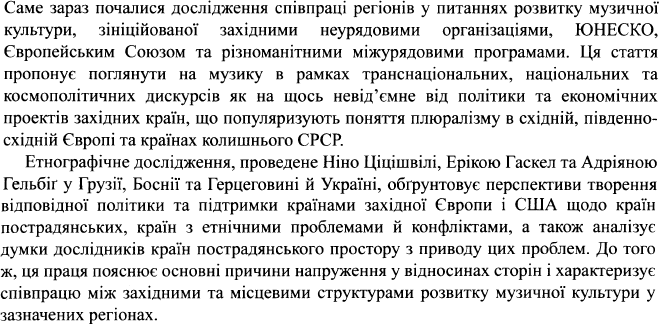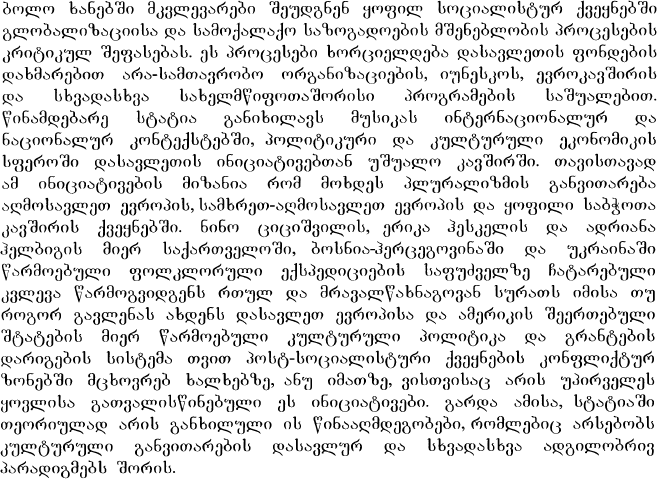Published online by Cambridge University Press: 07 March 2019
Researchers have increasingly begun to critically assess local engagements with globalizing notions of civil society that have been introduced via Western-based supranational political, economic, financial, and cultural programmes (Fischer 1997; Okongwu and Mencher 2000; Yúdice 2003). Following the notion of thinking globally and acting locally, such programmes are usually set up by transnational structures such as the World Bank, UNESCO, the European Union, or global foundations such as the Open Society Institute, and put into practice by local actors, among them non-governmental organizations. This article positions music within intra-national discourses that work hand-in-hand with the political and cultural economics of Western cultural initiatives and aim to promote an understanding of pluralism in countries throughout Eastern and South Eastern Europe. Drawing on ethnographic fieldwork conducted by Nino Tsitsishvili, Erica Haskell, and myself in Georgia, Bosnia and Herzegovina, and Ukraine, respectively, this study juxtaposes the perspectives of policy makers and grant givers in Western Europe and the United States with the views of people in post-socialist conflict zones for whom such initiatives are intended. It analyses the political and cultural implications of UNESCO's declaration of Georgian polyphony as a masterpiece of intangible cultural heritage of humanity, the local effects of internationally sponsored music projects in post-war Bosnia and Herzegovina, and the role of national minority music festivals sponsored by Western philanthropic organizations in nation-building processes in Ukraine.


Istraživači sve više počinju kritički posmatrati lokalno angažiranje u globalnom poimanju civilnog društva, koje je uvedeno preko nevladinih organizacija finansiranih od strane Zapada, UNESCO-a, Evropské unije i različitih međudržavnih programa. U ovom članku muzika je stavljena unutar transnacionalnih, nadnacionalnih i nacionalnih diskursa koji djeluju zajedno s političkom i kulturnom ekonomikom zapadnih inicijativa iz oblasti kulture, a cilj im je promocija razumijevanja i pluralizma u zemljama Istočne i Jugoistočne Evrope i bivšeg Sovjetskog Saveza. Koristeći se terenskim etnografskim istraživanjem Nino Tsitsishvili u Gruziji, Erice Haskell u Bosni i Hercegovini i Adriane Helbig u Ukrajini, ova studija suprostavlja percepcije kreatora politike i davalaca nepovratnih finansijskih sredstava iz Zapadne Evrope i Sjedinjenih Američkih Država s percepcijama stanovišta s područja postsocijalističkih etničkih sukoba, kojemu su pomenute inicijative namijenjene. Štaviše, ona s teoretskog stanovišta posmatra tenzije, jazove i zajednička djelovanja zapadnih i promjenjivih domačih paradigmi razvoja kulture.
Special thanks to Erica Haskell (PhD candidate in ethnomusicology, Department of Music, Brown University, USA) and Nino Tsitsishvili (honorary research fellow, School of Music Conservatorium, Faculty of Arts, Monash University, Australia) for allowing me to present the ideas put forth in our panel “In Culture's Name: Western Development Aid, Identity Politics, and Post-Socialist Ethnomusicologies” at the 39th World Conference of the International Council for Traditional Music in Vienna, 4-11 July 2007. I am grateful to them for our shared dialogue and for their insightful comments, suggestions, and bibliographic references, particularly as regards their research in Georgia and Bosnia and Herzegovina.